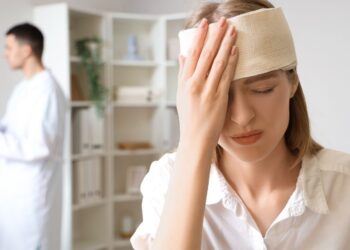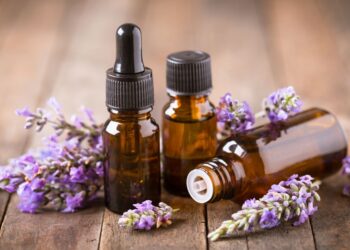Mental burnout means complete mental and emotional exhaustion. It drains focus, energy, and motivation. Deadlines, endless notifications, and constant pressure from work or personal life accelerate this state. People push themselves harder while ignoring signs of stress. However, exhaustion keeps building until daily routines feel overwhelming. Quick fixes like caffeine or late-night distractions worsen the problem. On the other hand, lasting recovery requires consistent choices that restore balance instead of masking symptoms. For this reason, finding practical methods to regain clarity matters. Sobriety helps break the cycle of mental burnout because it removes harmful patterns and creates space for real healing, stronger routines, and long-term resilience.
The Hidden Link Between Alcohol and Burnout
Alcohol often appears to provide relief after stressful days, but its effect is misleading. It temporarily dulls emotions, giving the impression of relaxation. Still, the body pays the price soon after. Sleep becomes lighter, leaving energy levels lower the next day. As a matter of fact, fatigue deepens while concentration weakens, making tasks harder to manage. With this in mind, people often drink again to cope with the strain. Dependency begins forming, and stress compounds instead of fading. Then again, the cycle of using alcohol as comfort intensifies mental exhaustion. Another key point is that the brain struggles to recover, as rest and balance remain out of reach. The illusion of relief hides the damage that steadily worsens burnout.

Why Escaping With Substances Deepens the Cycle
People often believe substances bring relief, but the opposite happens. Alcohol and drugs disturb natural rhythms of rest. In contrast, short-term calm turns into long-term instability. Sleep quality drops, focus weakens, and mood swings grow sharper. Many repeat the behavior, thinking another drink will reduce stress. Reliance only multiplies problems. Anxiety increases, and burnout accelerates. The body struggles to recover, as energy drains faster each day. Substances disrupt brain chemistry, leaving decision-making clouded. As the cycle repeats, stress no longer feels manageable. Substances push people deeper into exhaustion instead of providing relief. True recovery requires removing these harmful crutches from daily routines.
Sobriety Helps Break the Cycle of Mental Burnout
Consistent sobriety restores balance where alcohol once created chaos. For those with habitual drinking, a detox from alcohol can jumpstart this process, allowing the body to recover and mental clarity to return. Without substances, the mind regains stability, and daily routines feel manageable instead of draining. Energy rises as sleep becomes restorative again. Stress no longer fuels dependency because healthier coping strategies take over. Nonetheless, challenges still exist, but they become easier to face with focus intact. Restored mental clarity helps people spot burnout early and address it directly. Sobriety helps break the cycle of mental burnout by ending destructive patterns and building resilience. With this shift, balance returns, and exhaustion no longer dominates life. Recovery becomes possible through consistent, clear-headed choices that strengthen both body and mind.
Building Sustainable Habits That Prevent Relapse
Recovery lasts when new habits replace destructive patterns. Routines such as morning exercise and mindful reflection keep stress levels manageable. Hobbies create outlets for creativity and focus. Support groups and therapy strengthen accountability, while some also find comfort in getting to the root of the problem through self-help books about substance abuse. Many turn to books about sobriety for insight and motivation, which can prove to be extremely effective.
Daily actions reinforce resilience, giving structure to long-term healing. However, relapse temptations exist, so preparation matters. Strategies such as avoiding triggers and practicing self-awareness reduce risk. On the contrary, setbacks should not define progress. Consistency makes change stronger over time. Sustainable habits form the backbone of lasting recovery. They replace old cycles with healthier systems that protect against future burnout.

Mental Energy Restored Through Clear Thinking
Clear thinking thrives without alcohol clouding the brain. In like manner, problem-solving improves when the mind functions at full capacity. Decisions feel sharper, and confidence in daily tasks returns. Nevertheless, distractions lose their power as focus sharpens with practice. With restored energy, people handle stress without collapsing into fatigue. Alcohol only drains mental resources and slows recovery. Sobriety builds natural resilience by freeing thought patterns from dependency. Concentration strengthens, memory improves, and creativity flows more naturally. Restored mental energy becomes a shield against burnout. The brain works as intended, giving people the power to manage stress and maintain stability even in challenging conditions.

Emotional Regulation Without Substances
Strong emotional health grows when alcohol no longer dominates. The prevalence of major depressive disorder among people with alcohol use disorder ranges from 27% to over 60%. Therefore, feelings become easier to manage, and self-control increases. Substance-free living improves patience and reduces extreme reactions. Stressful moments lose intensity, and conversations remain constructive instead of heated. Similarly, healthy coping strategies, such as exercise and mindfulness, build stronger emotional stability. Relationships grow healthier because communication feels more honest. Setbacks may still occur, but they no longer spiral into chaos. Emotions processed naturally strengthen resilience. Sobriety provides the chance to face challenges with balance and confidence. Emotional regulation without substances prevents burnout from intensifying, making daily life manageable and far less draining over time.
Physical Health and Burnout Recovery
Body and mind connect deeply during recovery. Sobriety strengthens both, creating a foundation for healing. Sleep patterns stabilize, restoring natural rest cycles. Besides, alcohol interrupts sleep and weakens energy. Balanced nutrition and exercise become easier choices without constant fatigue. Energy levels rise, focus improves, and the immune system grows stronger. A healthy body shields the mind from burnout. People find the strength to meet challenges without collapsing under stress. Routine activities become less overwhelming when the body feels rested. Physical health acts as a partner in recovery. Sobriety builds energy reserves that prevent burnout from returning with the same force.
A Clear Path Out of Burnout
Mental burnout drains strength, but sobriety restores balance. Clarity returns when harmful patterns end. With consistency, people face challenges without collapsing into fatigue. Alcohol only deepens exhaustion, keeping the cycle alive. Sobriety helps break the cycle of mental burnout by giving space for healing. It opens a path to lasting change. Emotional control, mental focus, and physical health all improve. Also, sustainable routines reinforce progress, ensuring burnout recovery continues. Stressful situations will still appear, but they no longer feel impossible to handle. In short, recovery thrives with sober living. The path forward offers clarity, strength, and resilience. Above all, lasting freedom from burnout grows through consistent choices that protect mental and physical well-being.














Discussion about this post